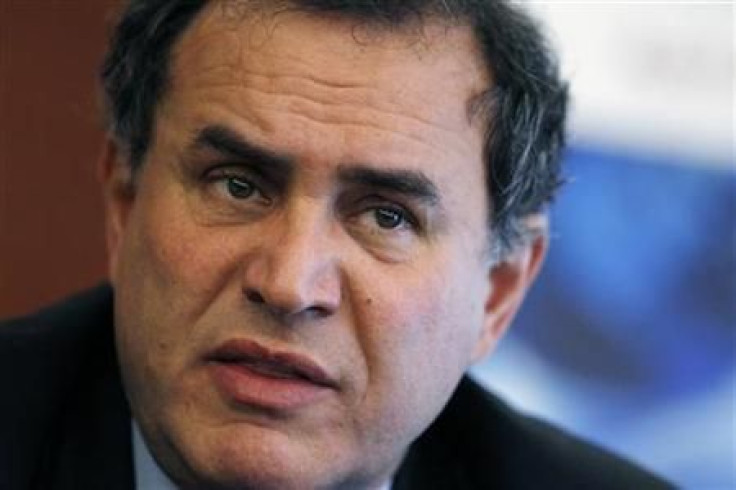Nouriel Roubini Says US Will Suffer ‘Payback’ For Not Implementing Euro-Style Economic Austerity, Predicts 1.5% GDP Growth For The Year

Speaking Friday from the annual Ambrosetti Forum, an economic conference held every year in Cernobbio, Italy, American economist Nouriel Roubini said the U.S. economy will pay for not going down Europe’s path of economic austerity.
Roubini, known as "Dr. Droom" for his gloomy forecasts, famously predicted the subprime mortgage meltdown and the 2008-09 recession. On the plus side, he says that the U.S. economy is benefiting from a rebound in the housing market, the U.S. shale gas boom, job growth and the Federal Reserve’s quantitative easing program.
But, on the down side, the nation is being dragged down by past policies and the country’s unwillingness to implement European-style austerity programs. Roubini says the effects of recent U.S. fiscal policies will pull down growth in the economy by about 1.5 percent.
“I think that we have another year in the U.S. of growth below trend ... one-and-a-half [percent] is the best estimate,” he told CNBC from Italy on Friday. “We have postponed the fiscal austerity, unlike the euro zone and the United Kingdom, and now we stole some growth from the future; we have to start the fiscal consolidation, and therefore there will be some payback from the mistakes made in the past.”
Economists polled by the Wall Street Journal in February predict a lackluster 2.4 percent growth rate for the year, but some of the more bearish estimates already out there -- such as the one put forward by The Conference Board -- are roughly in line with Roubini’s 1.5-percent estimate.
Roubini, an Iranian-American professor at New York University’s Stern School of Business, who often cites Keynesian economist Jeffrey Sachs as an inspiration, also spoke about the recent inconclusive Italian elections, and he called the economic and political situation in the Southern European country “a political storm” and a "tsunami risk" that threatens to exacerbate an already brewing public animosity toward austerity lauded by Germany.
"In this time the economy will get worse given the political uncertainty, less investment, less job hiring and less consumption. There's a meaningful chance that the new [political] forces in Italy, whatever combination there is, these will be significantly against austerity, and then we'll get a clash between Italy and Germany and the ECB," he said.
© Copyright IBTimes 2024. All rights reserved.












